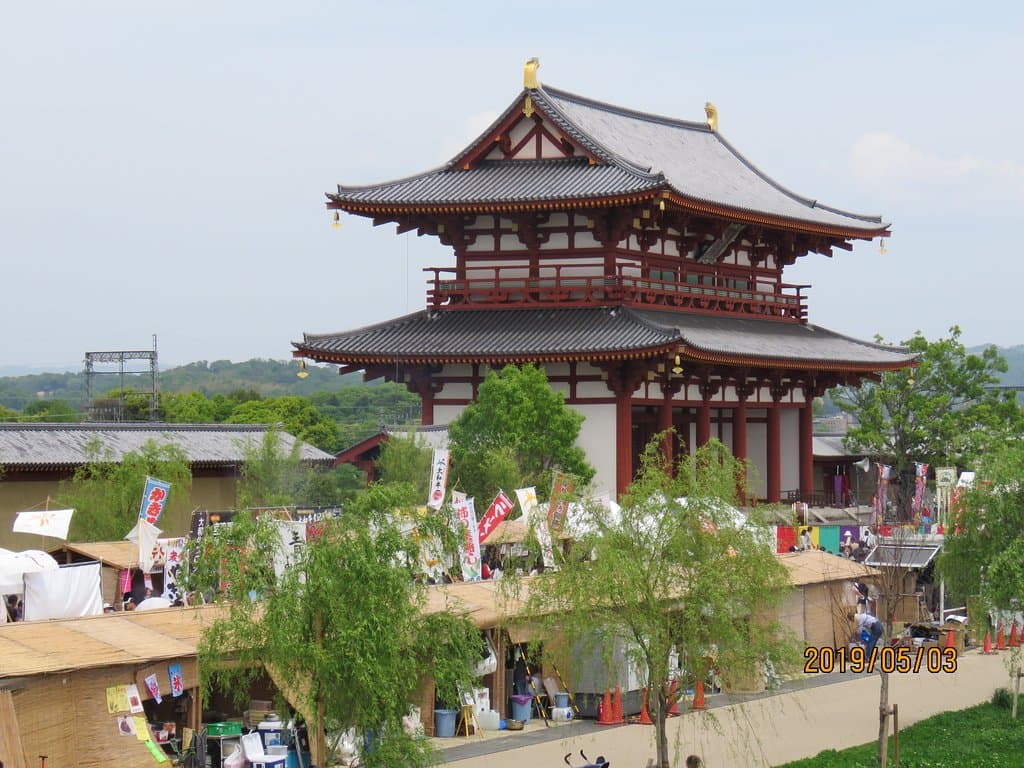
Suzakumon Gate
A meticulously reconstructed vermilion gate, the grand southern entrance to Nara's ancient imperial palace, symbolizing Japan's historical grandeur.

Highlights
Must-see attractions

Social
From TikTok & Reddit
Best Time
Best for architectural detail

Suzakumon Gate
Best Time
Best for architectural detail

Highlights
Must-see attractions
A meticulously reconstructed vermilion gate, the grand southern entrance to Nara's ancient imperial palace, symbolizing Japan's historical grandeur.
"The gate lights up at night and is beautiful though I wouldn’t have stayed too long if it weren’t for the fireworks."
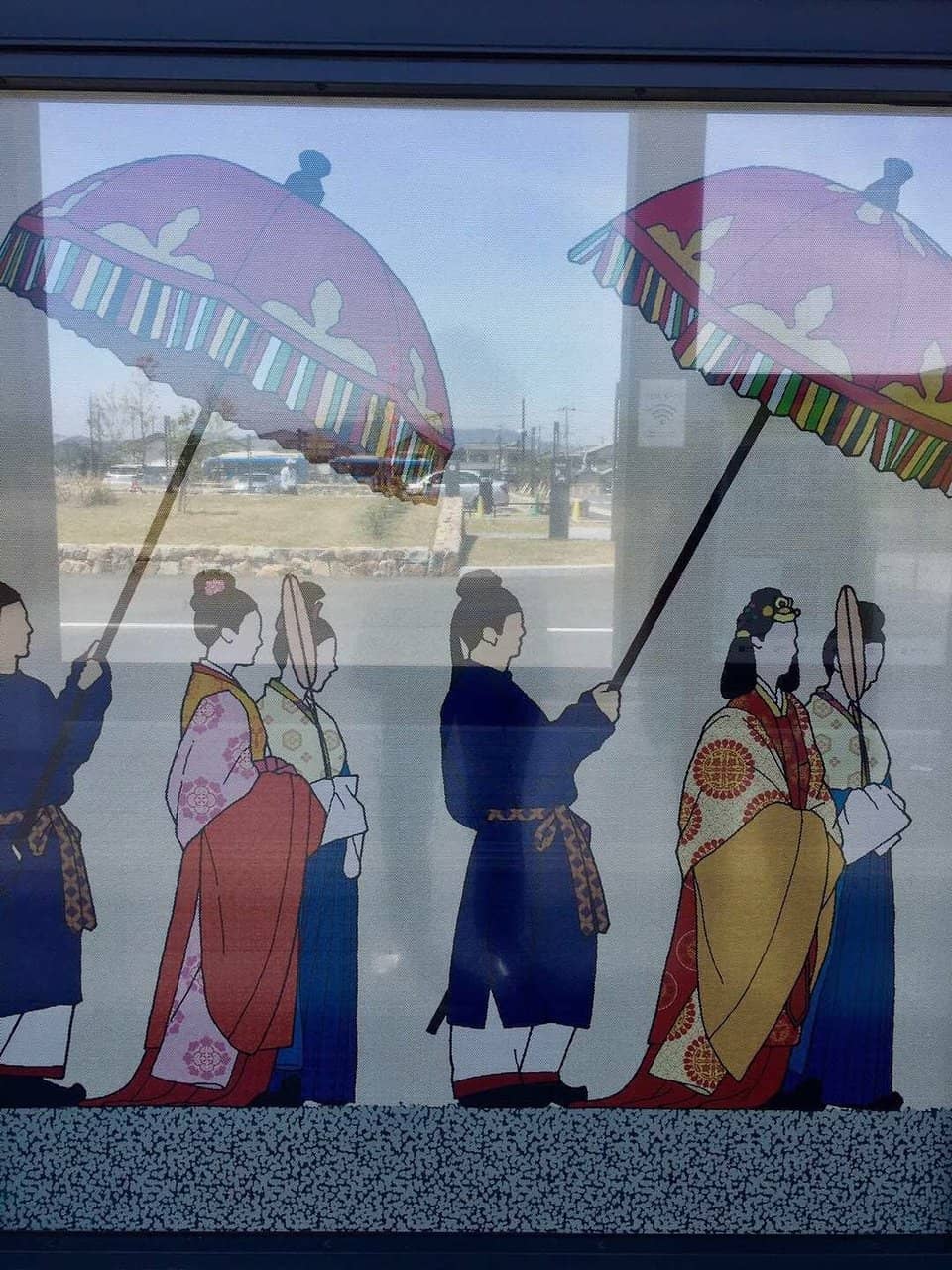
🎯 Trust Google Maps
Locals may give incorrect directions; Google Maps is your best bet for reaching Suzakumon Gate accurately.
⏰ Check Closing Times
The gate and surrounding site can close by 18:00, so plan your visit accordingly to avoid disappointment.
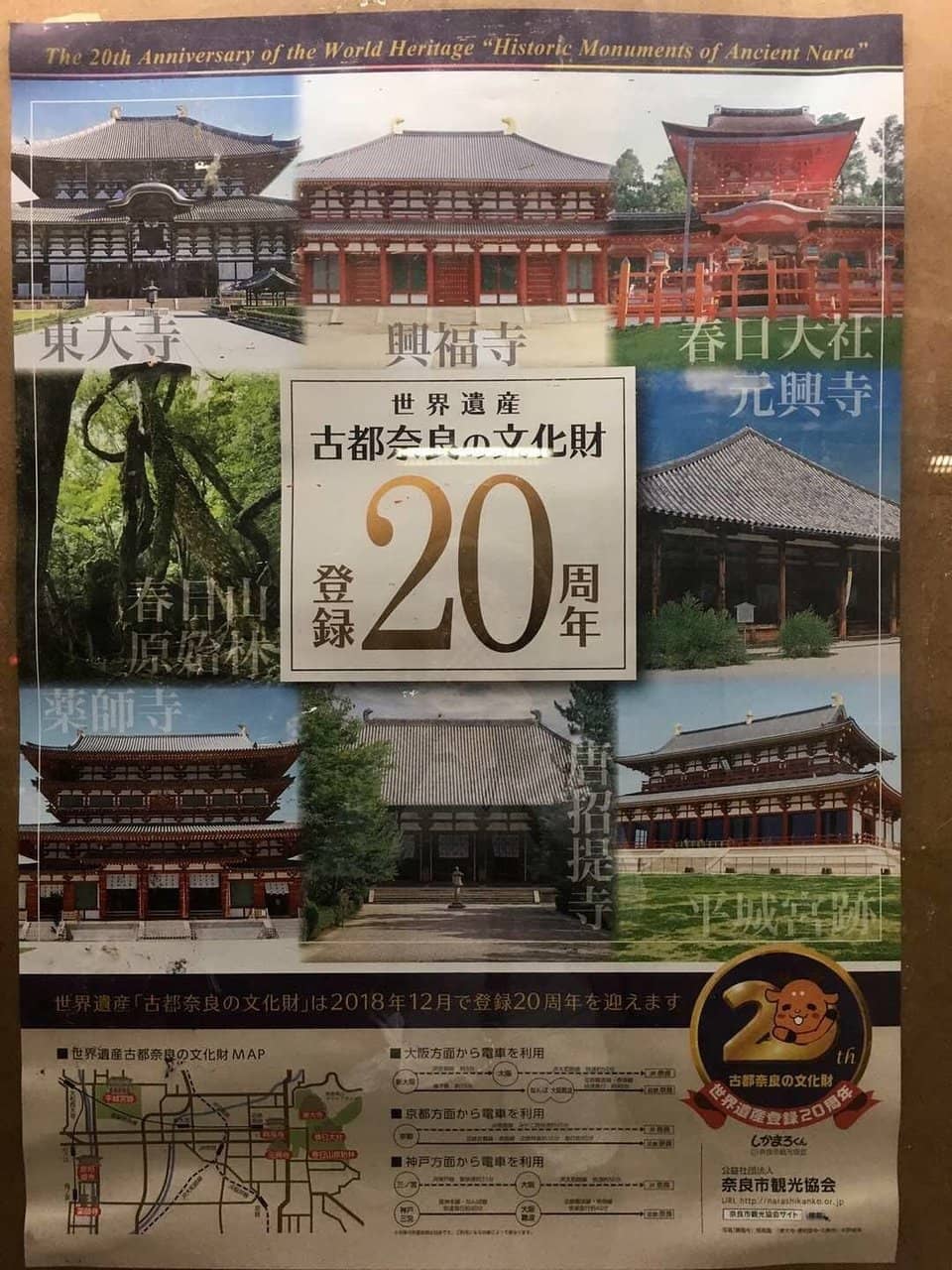
Highlights
Discover the most iconic attractions and experiences
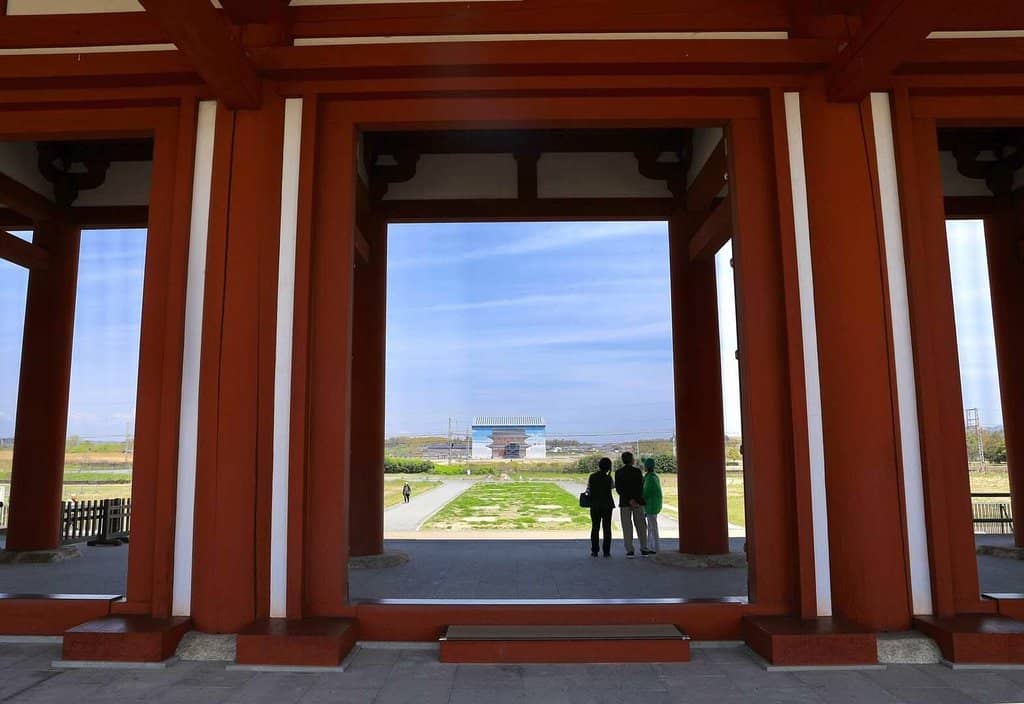
The Grand Reconstruction
South end of Heijo Palace Site
A meticulously restored 25m wide, 20m tall vermilion gate, a striking symbol of Nara's ancient imperial past.
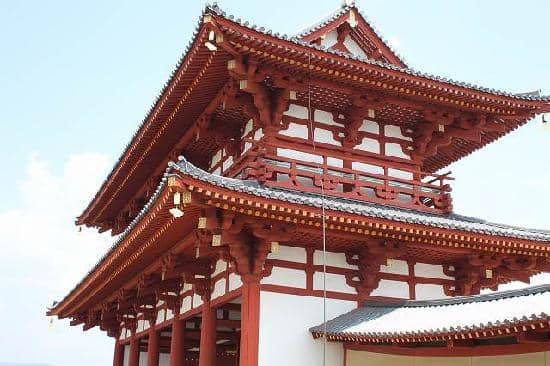
Nighttime Illumination
Suzakumon Gate
The gate lights up beautifully at night, offering a different, atmospheric perspective of this historical structure.
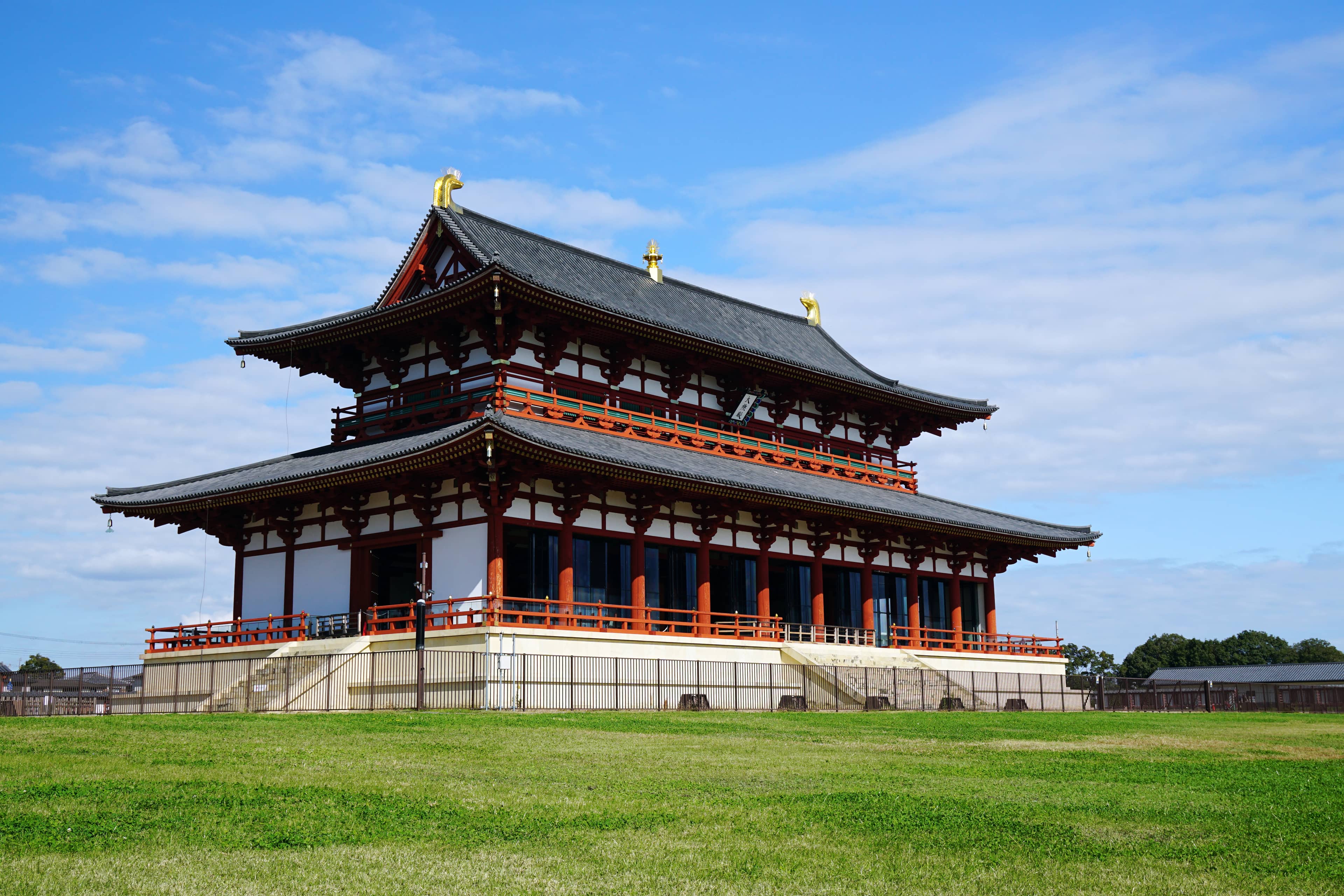
Heijo Palace Site Exploration
Surrounding area of Suzakumon Gate
Explore the reconstructed Daigokuden and other palace buildings, offering a glimpse into Nara's imperial grandeur.
Plans like a pro.
Thinks like you
Planning Your Visit
Timing Your Visit
Navigating to the Gate
Best Times
Insider Tips
from TikTok, Instagram & Reddit
🎯 Trust Google Maps
Locals may give incorrect directions; Google Maps is your best bet for reaching Suzakumon Gate accurately.
⏰ Check Closing Times
The gate and surrounding site can close by 18:00, so plan your visit accordingly to avoid disappointment.
✨ Evening Glow
The gate is beautifully lit at night, offering a stunning visual experience after dark.
🏛️ Explore the Palace
Don't just see the gate; explore the reconstructed Heijo Palace buildings for a fuller historical experience.
Tips
from all over the internet
🎯 Trust Google Maps
Locals may give incorrect directions; Google Maps is your best bet for reaching Suzakumon Gate accurately.
⏰ Check Closing Times
The gate and surrounding site can close by 18:00, so plan your visit accordingly to avoid disappointment.
✨ Evening Glow
The gate is beautifully lit at night, offering a stunning visual experience after dark.
🏛️ Explore the Palace
Don't just see the gate; explore the reconstructed Heijo Palace buildings for a fuller historical experience.
What Travellers Say
Reviews Summary
Visitors praise Suzakumon Gate for its impressive reconstruction and vibrant appearance, especially when illuminated at night. It's seen as a significant historical landmark offering a glimpse into Nara's imperial past. Some note that navigating to the site can be tricky and recommend checking operating hours as it can close early.
"Massive gate leading to the site of the palace itself. Located at the south end of the imperial palace, it is the main entry into the palatial grounds. In the past, grand ceremonies were held in front of the gate on New Year's Day and for the arrival and departure of diplomatic envoys. The current Suzakumon was meticulously restored in 1998, featuring a 25m frontage and standing 20m tall."
Andrew Ang
"Suzakumon Gate (朱雀門) is a significant historical landmark located in Nara, Japan, serving as a reconstructed symbol of the city’s ancient heritage. Originally built during the Nara period (710–794), it was the grand southern entrance to Heijo Palace (平城宮), the imperial residence when Nara was Japan’s capital. The gate stood as an emblem of the nation’s political and cultural power, forming a vital part of the symmetrical layout of the capital city, inspired by Chinese Tang dynasty designs.
The present Suzakumon Gate is a meticulous reconstruction completed in 1998, based on historical records, archaeological findings, and traditional building techniques. The two-story structure is painted in striking vermilion, with green tiles adorning its roof and intricate wooden carvings. Its vibrant colors and imposing size make it a striking sight, offering a glimpse into the grandeur of ancient Japan.
Suzakumon Gate is part of the Heijo Palace Site, a UNESCO World Heritage Site and a popular destination for history enthusiasts. Visitors can explore the surrounding area, including the Daigokuden (Imperial Audience Hall), which has also been reconstructed to reflect the splendor of Nara’s imperial past. Seasonal events, such as reenactments and festivals, bring the site to life, celebrating its historical significance.
Standing as a testament to Nara’s role as the cradle of Japanese civilization, Suzakumon Gate is both a cultural treasure and a vivid reminder of the city’s architectural and historical legacy."
HANS XIA
"Went for the fireworks in the winter (end of January)
Be warned a lot of locals gave me the wrong directions to get to this gate , follow google maps for the best route. The gate lights up at night and is beautiful though I wouldn’t have stayed too long if it weren’t for the fireworks.
Really beautiful nonetheless."
Jason Di Iorio
What People Like
What People Dislike
Frequently Asked Questions
🚇 🗺️ Getting There
Suzakumon Gate is located at the south end of the Heijo Palace Site in Nara. While locals might offer directions, it's highly recommended to follow Google Maps for the most accurate route, as some visitors have reported receiving incorrect guidance.
Yes, the Heijo Palace Site, including Suzakumon Gate, is accessible by public transport. You can typically reach the area via bus from Nara Station. Check local bus routes for the most convenient options.
The Heijo Palace Site is quite expansive. Suzakumon Gate serves as a main entrance. Consider using a map of the site to orient yourself and plan your exploration of the reconstructed buildings.
Yes, there are usually parking facilities available near the Heijo Palace Site. If you are driving, look for designated visitor parking areas.
Suzakumon Gate is located a bit north of Nara Park. While it's a significant walk, it's not typically considered a short stroll. Public transport or a taxi would be more efficient.
🎫 🎫 Tickets & Entry
Suzakumon Gate itself is an outdoor structure and generally accessible. However, entry into some of the reconstructed buildings within the Heijo Palace Site may require a ticket. It's best to check the official Heijo Palace Site website for current admission policies.
The Heijo Palace Site, including Suzakumon Gate, typically has specific operating hours. Some visitors have noted it can close by 18:00, so it's crucial to verify the exact opening and closing times before your visit.
While the gate itself might be free to view from the outside, access to the reconstructed palace buildings and any associated museums or information centers within the Heijo Palace Site may have an admission fee. Confirm details on their official site.
The gate is often illuminated at night, offering a beautiful spectacle. However, access to the grounds might be restricted after closing hours. It's best to enjoy the illuminated view from outside the main site if it's closed.
Information centers within the Heijo Palace Site may offer details about guided tours or audio guides. It's advisable to inquire on-site or check their website for availability and schedules.
🎫 🏛️ Onsite Experience
Suzakumon Gate is a grand, reconstructed historical landmark. You can admire its architecture, take photos, and learn about its significance as the former southern entrance to the imperial palace. The surrounding Heijo Palace Site offers further exploration of reconstructed buildings.
To fully appreciate Suzakumon Gate and the surrounding Heijo Palace Site, including information centers, plan for at least a few hours. Some visitors suggest several hours to explore the complex.
Absolutely! Suzakumon Gate is a very photogenic structure, especially with its vibrant colors. It's also beautiful when illuminated at night. The surrounding reconstructed palace buildings offer additional photographic opportunities.
Yes, visitor facilities like restrooms are typically available within the Heijo Palace Site. Information centers may also provide additional amenities.
Suzakumon Gate was the main southern entrance to Heijo Palace during the Nara period (710-794), when Nara was Japan's capital. It symbolized the nation's political and cultural power and was a site for important ceremonies.
📸 📸 Photography
The front of the gate offers a classic, imposing shot. For wider views, step back to capture its scale against the sky. The illuminated gate at night provides a dramatic and atmospheric photo opportunity.
Drone usage is typically restricted at historical sites and UNESCO World Heritage locations to protect the structures and ensure visitor safety. It's best to assume drones are not permitted unless explicitly stated otherwise.
Daylight hours are excellent for capturing the vibrant colors and architectural details. For a more dramatic effect, consider the 'golden hour' just after sunrise or before sunset. Night photography is also highly recommended for its illuminated beauty.
Generally, photography for personal use is allowed in most outdoor areas. However, flash photography might be restricted inside reconstructed buildings or museums to protect artifacts. Always check for signage.
For daytime shots, a standard aperture (f/8-f/11) will ensure sharpness. For night shots, use a tripod and a longer exposure time with a wider aperture (f/2.8-f/4) to capture the light effectively.
For Different Travelers
Tailored advice for your travel style
👨👩👧 Families with Kids
Practical tips for families include bringing comfortable walking shoes as the site is spread out. Consider packing snacks and drinks, as amenities might be limited. While the historical context might be complex, focusing on the visual aspects and the idea of a 'palace' can make it fun for younger visitors. Checking for any seasonal events or festivals could also add an extra layer of excitement to the visit.
📸 Photography Enthusiasts
Beyond the gate, the reconstructed Heijo Palace buildings provide ample opportunities for capturing traditional Japanese architecture. Experiment with different angles and perspectives to showcase the scale and intricate designs. Remember to check for any photography restrictions within indoor exhibits, though outdoor areas are generally permissive.
🏛️ History Buffs
Take your time to explore the information centers and the reconstructed palace structures. These elements offer context and detail about the daily life, governance, and architectural styles of the era. Comparing the reconstructed gate with historical accounts and archaeological evidence will enrich your understanding of this significant historical site.
Deep Dives
In-depth insights and expert knowledge
The History and Reconstruction of Suzakumon Gate
The original Suzakumon Gate eventually fell into disrepair over centuries. However, recognizing its historical significance, a meticulous reconstruction was undertaken and completed in 1998. This modern iteration is based on extensive archaeological findings, historical records, and traditional Japanese architectural techniques. The result is an imposing two-story structure, measuring 25 meters wide and standing 20 meters tall, painted in a striking vermilion hue with green-tiled roofs, aiming to replicate the grandeur of its ancient predecessor.
Today, Suzakumon Gate is a key component of the Heijo Palace Site, a UNESCO World Heritage Site. Its reconstruction allows visitors to visualize the scale and splendor of the ancient capital. Alongside the reconstructed Daigokuden (Imperial Audience Hall) and other palace structures, Suzakumon Gate offers a tangible connection to Japan's rich history, making it a vital landmark for understanding Nara's past.
Experiencing Suzakumon Gate: Tips from Visitors
For those planning a visit, timing is key. While the gate is impressive during the day, many travelers highlight the magical experience of seeing it illuminated at night. This offers a different, more atmospheric perspective. However, be aware that the site may have specific closing hours, with some visitors noting it can shut down by 18:00, so checking these in advance is crucial.
Navigational advice from travelers is also important: rely on GPS like Google Maps for directions, as some locals may provide inaccurate information. Consider allocating several hours to fully explore the site, as there are information centers and other reconstructed buildings to discover beyond just the gate itself.



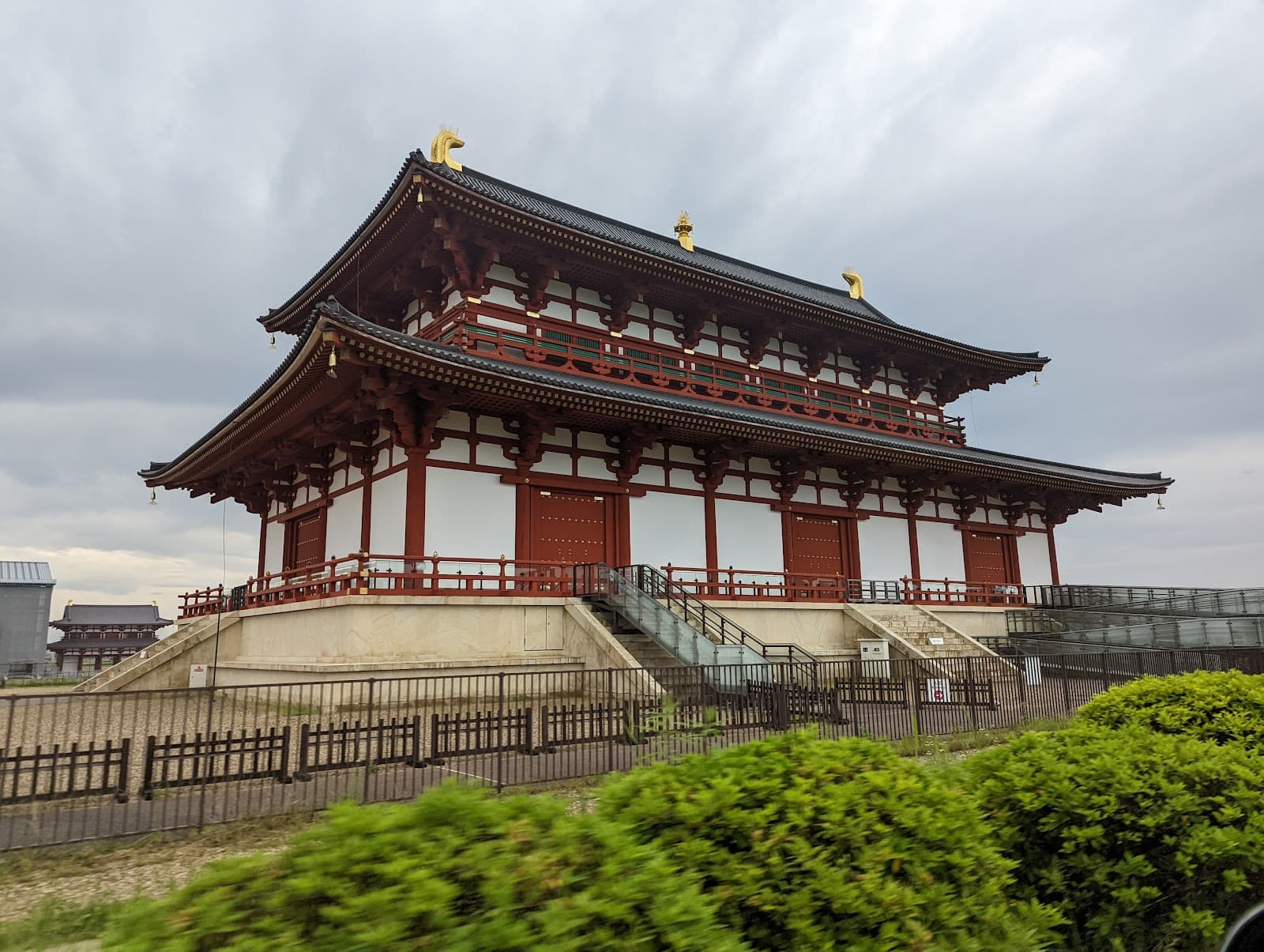
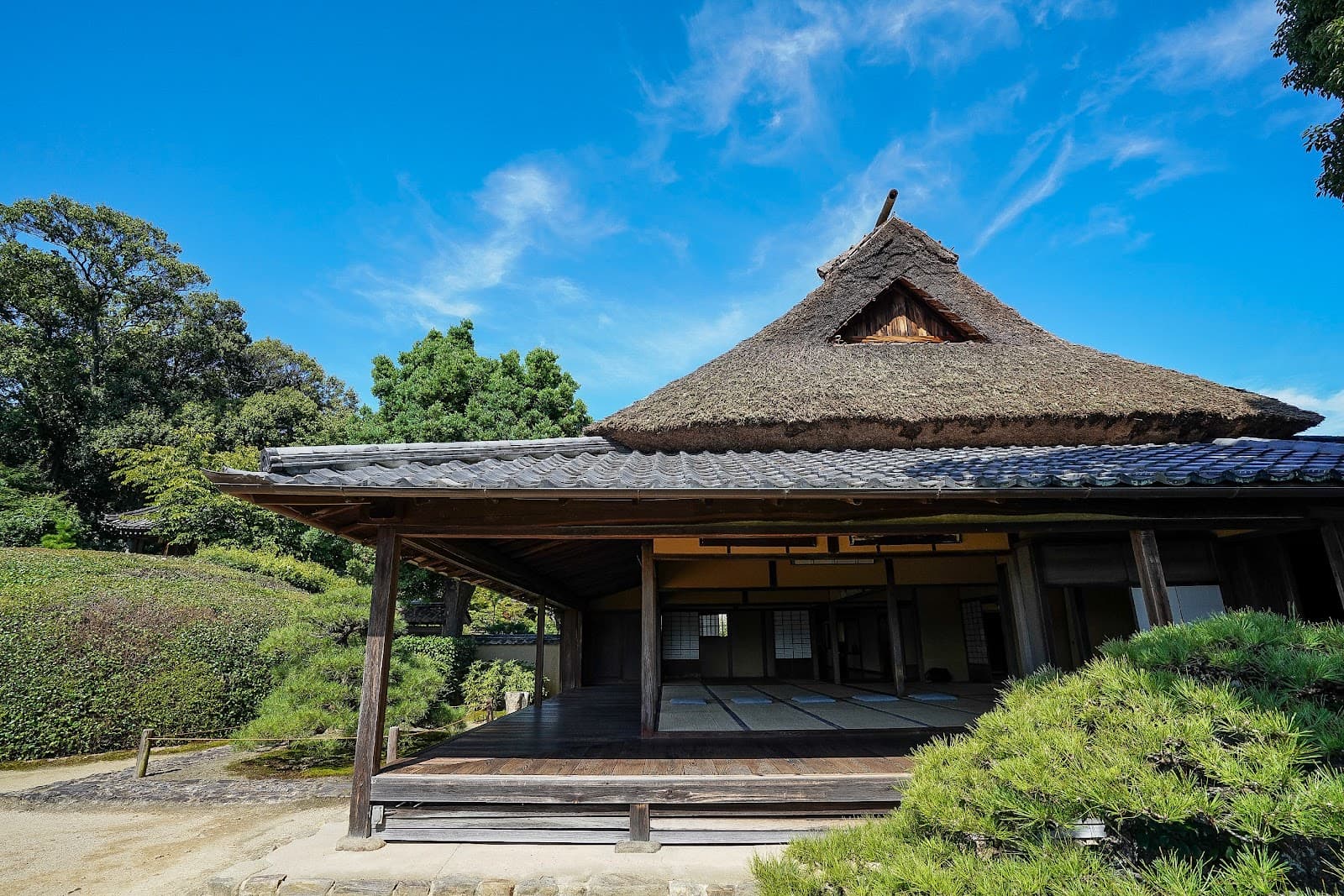

Social
from TikTok, Instagram & Reddit